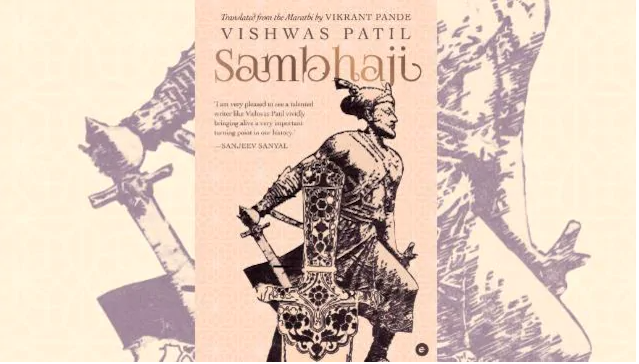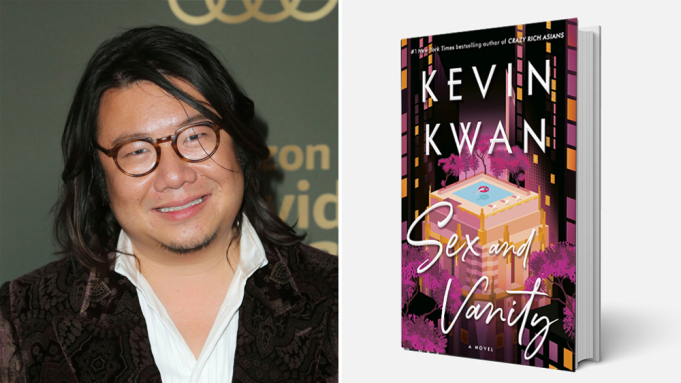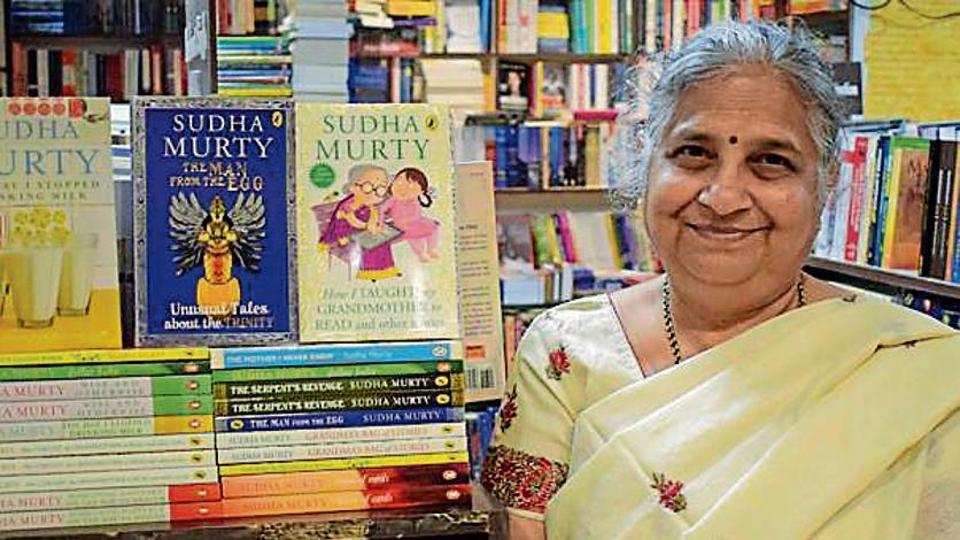Frontlist | Read an excerpt from Vishwas Patil's Sambhaji, a moving portrait of an oft misunderstood braveheart
Frontlist | Read an excerpt from Vishwas Patil's Sambhaji, a moving portrait of an oft misunderstood bravehearton Mar 15, 2021

Even as a child, Sambhaji has known he must stand alone. His mother died when he was barely two, and his father was always absent — chasing his own dream of ‘Swaraj’, fighting to keep the Mughal emperor Aurangzeb at bay. As the eldest son, Sambhaji is the true heir to Shivaji. He is valorous, wise and has the makings of a capable statesman. But there are dark forces at play in the palace. Shivaji’s other queen, Soyrabai, is scheming to place her son Rajaram on the throne, and she has the support of several ministers whose misdemeanours Sambhaji is determined to expose.
On 3 April 1680, Shivaji dies unexpectedly, and it is finally time for Sambhaji to rise to the challenge. He must now fight Aurangzeb, who has spent 20 years trying to smoke out the ‘mountain rat’, and whose presence in the Deccan poses an increasingly grave threat to the Maratha empire. And what could be better than the enemy’s own brother-in-law willing to hand him the rat on a platter.
A moving portrait of an often misunderstood braveheart, Vishwas Patil’s Sambhaji is a massive bestseller that has sold over 1,00,000 copies in Marathi. Cinematic and ambitious in its scope, this is a keenly researched and splendidly executed period drama about one man’s struggle to preserve his father’s legacy and of the price extracted by the throne and the homeland. Now, it has ben translated from the Marathi by Vikrant Pande. Read an excerpt here —
Sambhaji entered Shivaji’s chamber and said, bending low in mujra, ‘Abasaheb, please bless me. As you have commanded, I am leaving for Shringarpur.’
For a moment, Shivaji Raje was taken aback. Then he said, placing his hands on his son’s shoulders, ‘What’s the hurry, Shambhu? Wait for a day. I have to leave for Karnatak and we can travel up to Sangameshwar together.’
The next day, the departure of Shivaji Raje and Sambhaji was announced by the horns and trumpets. Once they reached Pachad at the base of Raigad, they turned to look up at the fort. A huge army of nearly twenty thousand cavalry and forty thousand foot-soldiers awaited the command from Shivaji Raje to move forward. It had been a long time since the Marathas had waged a campaign of this magnitude, and the men seemed restless, eager to march forward.
On such occasions, Jijabai would have accompanied them till Pachad to bless Raje before he set out on a new campaign. Her death, soon after the coronation, had deeply affected Raje. He directed his men towards her mausoleum to pay his respects. At a respectful distance stood Suryaji Malsure, Baji Sarjerao, Yesaji Kank, Sarfoji Gaekwad, Anandrao and many others sardars. They waited patiently as Shivaji spent a long time at the grave. He could feel his mother’s presence there and he sorely missed her blessings.
Shivaji recalled the day they had left for Agra. The treaty of Purandar, signed with Mirza Jai Singh and Diler Khan, had forced them to make the trip to pay their respects to the Mughal emperor Aurangzeb. Before their departure, Shivaji had spent time training Sambhaji in the art of using the sword and the spear. He had also coached him on how to behave in the Mughal court and other matters of ettiquette.
When they were about to leave, Jijabai had asked, her voice choking with emotion, ‘Shivba, is it necessary to take this young lad with you? Are you not being cruel?’
Shivaji had replied, ‘Maasaheb, the treaty forces me to. I have no choice.’
He had stood watching Jijabai hug Sambhaji who refused to leave his grandmother’s embrace. It was a poignant moment, but Shivaji had grown restless and said, ‘Maasaheb, I have a duty to fulfil. Please let Sambhaji go now. Do you remember how you had blessed me when I set out to meet Afzal Khan? You knew the dangers that awaited me; yet you had given me your good wishes smilingly, urging me to kill that demon.’
Jijabai said, ‘Raje, you will understand my emotions when you become a grandfather.’
‘Maasaheb, I can understand your emotions. But an eaglet, if it has to soar high in the air, must learn to live with the dangers of flying. How else will it develop strong wings?’
Shivaji could hear Jijabai’s voice ask him, as he sat near the grave, ‘What happened to your eaglet, Shivba? Why are you leaving your brave and valorous son in Shringarpur instead of taking him with you?’
Shivaji’s angst was palpable. He knew he was making a mistake, yet he felt helpless. He asked Sambhaji to ride with him for a while. At Sangameshwar, they parted ways after crossing the river Shastri. Yuvraj took the route for Shringarpur while Shivaji turned towards Karnatak.
Before departing, Sambhaji said, ‘Abasaheb, you have just recovered from a long illness. I feel I should be by your side on this campaign. But you are not asking me to join you. I could have been of great service to you, yet you choose not to take my help.’
‘Shambhu, please be patient. Things will turn out fine.’
‘Abasaheb, it is difficult for me to accept the fact that you are going to war in the southern provinces, at your age, while I—capable in every way of leading our troops—must stay put in Shringarpur. But it seems I have no choice but to obey your command.’
Raje was acutely aware that Sambhaji’s pride had been deeply hurt by his decision. He said, ‘The Yuvraj has recourse if he feels some injustice has been done to him. But what if the King himself feels that he is being tried? Who does he reach out to?’
‘Abasaheb, maybe the fault lies in my stars. But it appears that the pens of the clerks and the whispers of others are more capable of taking revenge than the swords of bravehearts which are left to rust.’
‘Shambhu, you are still young. Let the matter rest!’
‘Abasaheb, I was only eight years of age when I attended Aurangzeb’s court with you. I was made a Mughal mansabdar before I turned ten. And now, when I am nearly twenty, I am labelled as an ignoramus and somebody who can easily be abandoned! How is that fair, Abasaheb?’
Shivaji could sense the helplessness Sambhaji was experiencing. Desperate to make amends before parting, he said, ‘Shambhu, it was a deliberate decision not to take you along on this campaign. Please try to understand. If something were to happen to me, I need you to take charge. Don’t you realise that?’
Sambhaji’s laughter surprised Shivaji. He replied, before his father could react, ‘The rest of the army and the treasury is at Raigad while I am being banished to Shringarpur. I wonder how I am to protect the kingdom.’
Shivaji held Sambhaji’s hand in his and squeezed it gently, saying, ‘Remember this, Shambhu; Raigad is not safe for you at present. For many reasons, I cannot allow you to remain there right now. I want to protect my son from danger. Please bear that in mind. You are dear to me.’
Sambhaji suddenly realised his father was suffering from the strain of being unable to speak his mind, and undergoing the same kind of torment as him.
Shivaji said, ‘Shambhu, at Shringarpur you will have a lot of time to be with yourself. Use that time to make friends with the sons of the soil, the ryots, and others around you. Learn to understand people better. And remember—there are many amongst us, men with no ethics whatsoever, who, for the smallest of selfish gains, will not hesitate to destroy their king or endanger their kingdom.’
Extracted with permission from Sambhaji by Vishwas Patil, translated from the Marathi by Vikrant Pande, published by Eka/Westland, February 2021.
Author
Authors
Book Excerpt
book news
Books
fineprint
Frontlist
FWeekend
Sambhaji
Vishwas Patil
Vishwas Patil books
Westland



.jpg)






.jpg)

.jpg)

.jpg)
.jpg)
.jpg)
.jpg)










Sorry! No comment found for this post.